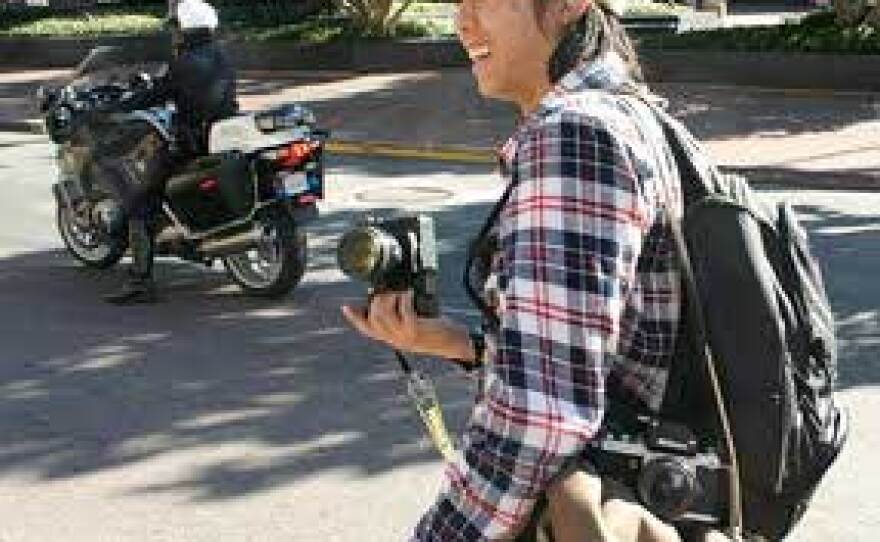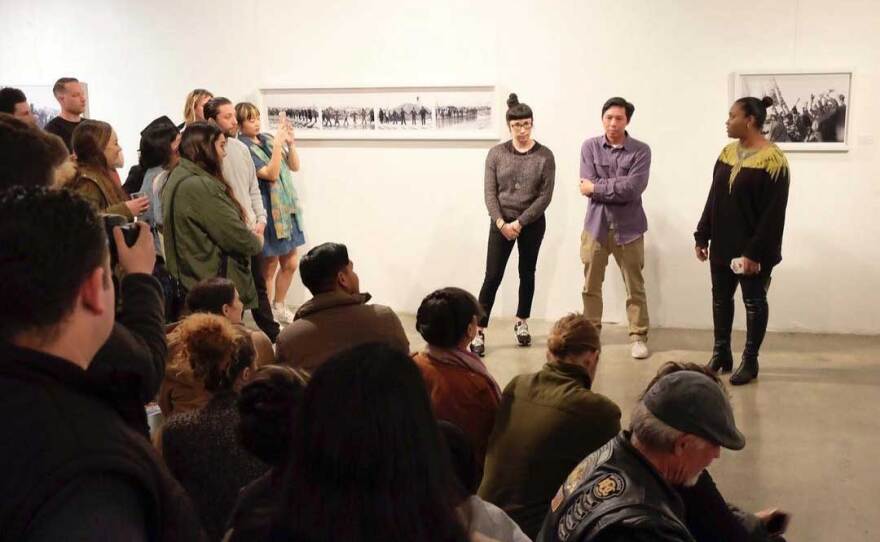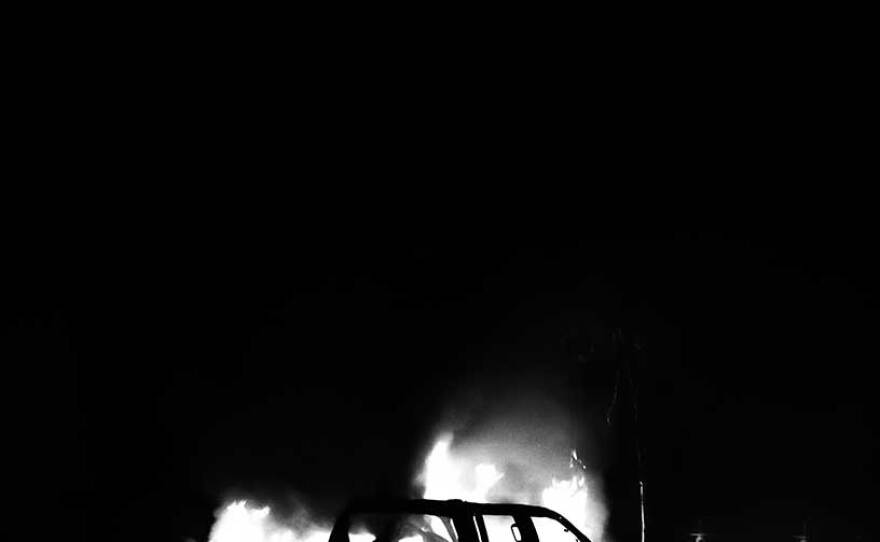Oceanside's Hill Street Country Club art space opens a new show this weekend, a retrospective of photographer Johnny Nguyen's work. The exhibition, "Normalize Radical," chronicles the decade Nguyen spent photographing street activism and counterculture movements in San Diego, beginning with the Occupy movement and leading right up until this summer's protests against police brutality and racial injustice.
Years ago, when he was laid off from an engineering job, he enrolled in classes at Palomar College and worked on the campus newspaper. For a while, Nguyen thought he may go into journalism, but he ultimately didn't see a future there, and turned back to engineering — his day job now is a civil engineer — and he returned to shooting pictures just for himself.
"A lot of my work is that — activism, protest work," Nguyen said. "I've shot for the school newspaper, so my work started off as photojournalism — taking a photo for the paper, working with the writer to make sure I get the right picture to represent their story," he said.
One of the early protests he participated in was the Occupy Wall Street movement in 2011 that took over the San Diego Civic Center Plaza. With his photojournalism background, it was a natural fit that he'd bring his camera along and document the scene around him.

He became known as a front-line photographer, and he said telling these stories was how he showed his allyship to others in the movement and the causes they represented.
"And slowly I'm recognizing that not only am I telling other people's stories of these movements, of these protests and demonstrations and the people that are doing this, but also I'm sharing my narrative and my opinions and my perspectives at the same time as I'm shooting now," he said.
"When I’m out there, taking these photographs, I’m really magnetized to the subversive groups, the counter culture. Even as a photojournalist I wanted to tell stories of subculture, not the school swim team," Nguyen said.

Nguyen, who is 38, knows he is still relatively young in terms of art and retrospective shows, but he understands that in the social justice movements, he needs to support the voices of younger generations. He acknowledges that as he gets older, he has more riding on his own safety.
Plus, he has new trauma to contend with.
In late May, Nguyen was shot by rubber bullets during the La Mesa protest against police brutality. "I'm still recovering from PTSD and trauma from that," he said, adding that he still has physical bruising and scars. "I may not be out there on the front lines for much longer but I respect the heck out of you," he said about the younger protesters.
He named the show "Normalize Radical" to tell the stories of the people that are willing to be louder and take direct action.
In one photograph in the show, a single truck burns at night. It was taken in La Mesa this May, but there's nothing recognizable about it. "I like that image a lot," Nguyen said. "It's ambiguous, it doesn't say much, but it's a feeling I want people to understand. I'm not saying that we should burn things down, but I want people to recognize that feeling of frustration and anger. Everybody has a boiling point, and that signifies that."
Nguyen wants his work to challenge individuals who are comfortable and ask questions like: What reaction is acceptable with this type of anger and heartache? "When I go out to those protests and marches, I am grieving," he said.

Hill Street is tackling the art opening with COVID-safe, masked style, offering two full days of socially distanced, small group "receptions" this Saturday and Sunday from 1-7 p.m. Appointments to view the work individually or in very small groups are available through the show's run.
It's a shift in the art opening format that Nguyen welcomes.
"Typically when you go to art receptions, it's really to be seen. You're drinking alcohol and you're not really looking at art. I like the fact that we're stepping away from it," Nguyen said. "If you only have five people in the room, you have access to the artist, the art in the gallery. It makes it so much more communal in a way. I'm really looking forward to it," he said.
"Normalize Radical: A 10-Year Photo Retrospective of Street Activism" will open at Hill Street Country Club for in-person viewing on Saturday and run through November. And if you aren't quite ready for indoor galleries, Hill Street's large windows on a corner lot make a good case for exterior window shopping, and the work will be viewable and for sale online.






